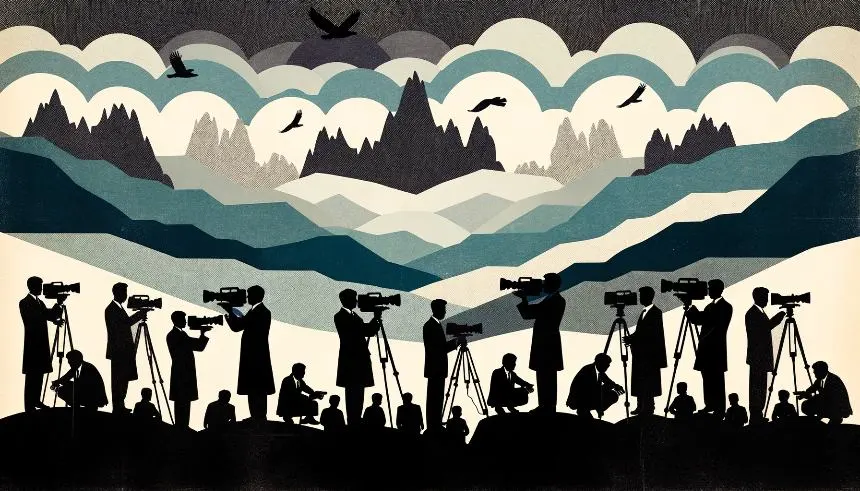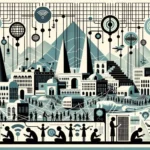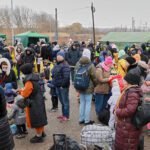Kurdistan, a region fragmented across the territories of Turkey, Iraq, Syria, and Iran, presents a unique set of challenges for its native journalists. The Kurdish people, who number approximately 30 million, are one of the largest ethnic groups without a sovereign state. Their collective struggle for independence has been a long-standing issue, making it a singular case in the realm of global politics and human rights.
The Unique Struggles of Kurdish Journalists
Unlike journalists from recognized nations, Kurdish reporters operate in a vacuum of political legitimacy. This absence of state backing renders them vulnerable targets for the governments of the countries they reside in. These governments frequently attempt to stifle their voices and suppress their cultural identities, thereby infringing upon their freedom of speech.
Even within semi-autonomous regions like certain areas in Iraq, Kurdish journalists find themselves in conflict with local Kurdish governance structures. A recent report by Foreign Policy, dated March 22, 2023, underscores this point. The report reveals that zones under Kurdish control often restrict free speech and employ force to quash dissent. An Iraqi Kurdish watchdog recorded at least 431 instances of local reporters being blocked or arrested in the previous year.
The Turkish Quagmire
Turkey has gained global notoriety for being among the top ten countries with the highest number of imprisoned journalists, as per a 2022 report by Reporters Without Borders. The Erdogan regime has intensified its crackdown on Kurdish journalists, especially as local elections approach. Over 110 individuals, including key members of the pro-Kurdish Persons’ Democratic Party (HDP), were detained just last month, ahead of the Turkish presidential elections scheduled for May 14. Journalists in Turkey’s predominantly Kurdish eastern and southeastern regions face disproportionately high rates of imprisonment and torture.
In Turkey, the legal system has been weaponized against Kurdish journalists, often under the guise of national security. Charges such as “terrorism” or “insulting the president” are frequently levied against them, but these charges are often based on nebulous legal definitions that are open to interpretation. This ambiguity allows the government to arbitrarily arrest and detain journalists, creating a climate of fear and self-censorship. The use of anti-terrorism laws, in particular, has been a point of international concern, as they are often applied in a manner that conflates legitimate journalistic activities with acts of terrorism.
Another layer of complexity in the Turkish context is the ownership of media outlets. A significant number of media organizations are owned by business conglomerates with close ties to the government. This relationship further marginalizes Kurdish journalists by limiting their access to mainstream platforms. The concentration of media ownership not only stifles diversity of opinion but also creates an echo chamber of government-approved narratives. As a result, the plight of Kurdish journalists and the issues affecting the Kurdish community rarely receive the balanced coverage they warrant, further perpetuating their marginalization.
Legal Ambiguities in Iraqi Kurdistan
Since the overthrow of Saddam Hussein in 2003, the Kurdistan Regional Government (KRG) has enjoyed a degree of autonomy within Iraq. However, this autonomy comes with its own set of restrictions on free speech. Laws are often ambiguously worded to suppress dissenting opinions, leaving journalists, activists, and critics vulnerable to intimidation and legal action. Laws like the Press Law and the Law to Prevent the Misuse of Telecommunications Equipment are frequently exploited to curb free speech, creating a legal gray area for online journalism.
Despite the myriad challenges, the community of Kurdish journalists remains optimistic about a future where they can freely express their opinions without the looming threat of punitive measures or persecution.
Conclusion: The Imperative for Global Attention
The plight of Kurdish journalists is a pressing issue that demands global attention and intervention. Their struggle is not just a fight for free speech but also a fight for the recognition of an entire ethnic community that has been marginalized for generations.
Adapted from a Global Voices article, licensed under CC BY 3.0









